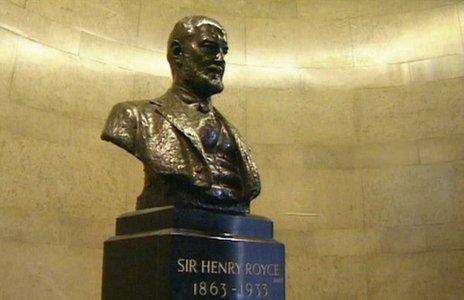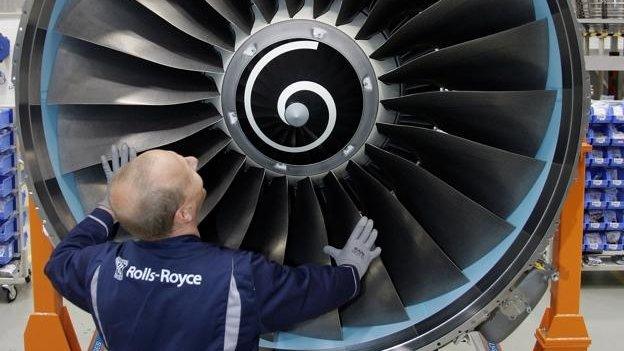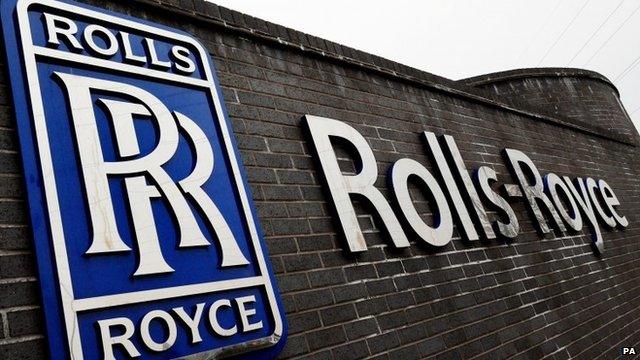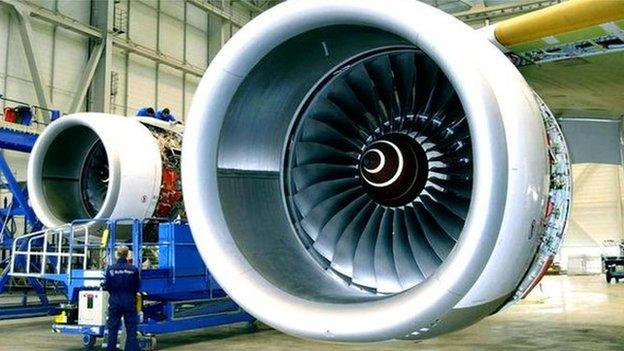Rolls-Royce plans to redevelop Derby site
- Published

The proposals could see Rolls-Royce develop a campus
Rolls-Royce has announced plans to modernise its main aerospace site in Derby to create a "campus".
The firm, which first moved to the city in 1906, said some of its buildings in Sinfin were no longer fit for purpose.
It also wants to re-route Victory Road, which currently divides Rolls-Royce in half, to create one unified campus.
A consultation has been launched and plans for the road are expected to be submitted by March. Work on the campus is not expected to start before 2017.
A spokeswoman said: "We have been based in the city since 1906 and some of the buildings on our main Derby site are many years old and no longer fit for purpose.
"We need to modernise our facilities to help us continue to be competitive and continue to meet the needs of our customers."

Rolls-Royce in Derby

Rolls-Royce moved to Nightingale Road in 1907 where it built the Silver Ghost car, dubbed "the greatest car in the world"
During World War One it acquired the Sinfin site and began manufacturing its first plane engine, the Eagle, later developing the Merlin which powered the Spitfire and the Hurricane
In the 1970s the aerospace section of the company was taken into state ownership and the car manufacturer was separated
After privatisation in the 1980s, the Nightingale Road site closed in 2007, completing the move to Sinfin

The change to the site is to begin with moving Victory Road so it runs round the north east edge of Rolls-Royce.
The firm aims to apply for planning permission in March, following the public consultation which runs this month, with work expected in July 2016.
More detailed proposals for changes to the campus have yet to be finalised but it expects modern buildings in a "parkland setting".
Rolls-Royce said the long-term plan, which could take more than a decade to complete, relied on getting planning consent and the company's continued ability to invest.
- Published10 December 2014

- Published4 November 2014

- Published5 November 2014

- Published17 October 2014
